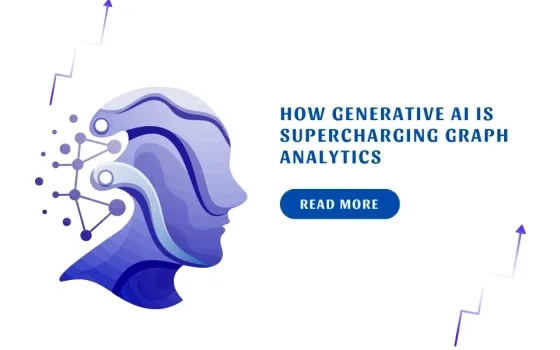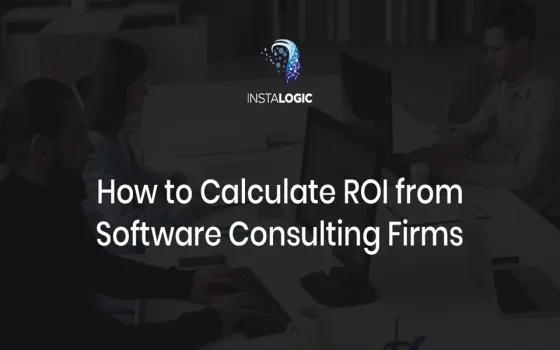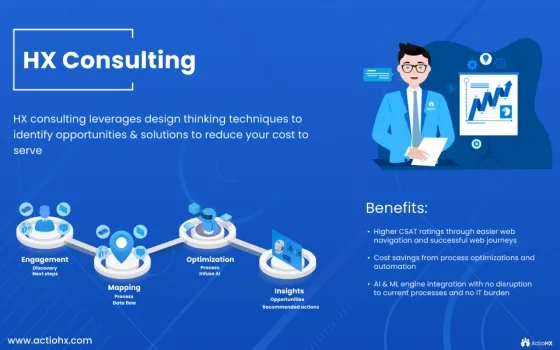For any business to succeed, the decision-makers and stakeholders need to understand what their customer wants, keep acknowledging their changing needs and adapt to design customer-centric solutions. Diving deep into customer behaviour and past activity, organizations can equip themselves with meaningful insights and leverage those to address issues or perform coarse corrections as need be. As a Technology partner to a client, one has the onus to put forth the best of products and practices, making it absolutely recommended for Product champions to be able to understand how to best use customer data for businesses' benefit. This brings us to the question - How can we leverage the constantly evolving Analytics to Improve Business Performance?
This short read intends to give an introduction to analytics and some relevant trending industry practices to champion those client interactions and recommend the best solutions to their problem statements. If you are a current or potential Business Owner, Data-Driven Company, Data Science Practitioner, Product Practitioner, Technology Enthusiast, and Inquisitive Learner, and you understand the power of data in today's world, you are the reader we are trying to reach.
Significance of Analytics in Today’s World
One may wonder why this hype about data and its relevance for today’s businesses. But the truth is, each day, every individual is subconsciously contributing to this enormous data lake for businesses to leverage. You enter a search keyword on the internet, and there you go, your entire browsing journey will be fuelled with ads and info mirroring your search history for days to come. And if that's not enough, you are sure to be overwhelmed with those personal messages and calls from Customer Care.
For quite some time now, data has acted as the bread and butter of every business. With client information captured throughout the customer journey, there is a virtual storm of data. It is this information that provides every business with IntelliSense to strategize their plan of action to attract customers and develop products and services acknowledging their needs and wants. With a plethora of information available, businesses must ask themselves, what to make of the available information. No business can derive sensible outputs from it in the absence of mindful analysis in a faster manner.
Hence, the global market of analytics runs on two driving factors:
- Ever-increasing Amount of Data
- Need for reducing Processing time
With a variety of analysis tools and techniques at hand, there is no one size fits all approach for data-driven business solutions. Each business is different, with a different agenda and varying target customer base and so is the approach to handling data for deriving actionable insights. This is where the various types of Analytics come into play.
Whilst each Analytics method is useful when used individually, they become compelling when used together!
Let's take a closer look at each Type Of Analytics

Here’s a quick comparison of the different kinds of Analytics through a Case Study:

How does a Cognitive Analytics model work?
To educate computing systems, cognitive computing techniques include self-learning mechanisms, data analysis, NLP, Big Data, and pattern recognition. Additionally, it is particularly useful for entertainment, banking, finance, retail, and healthcare industries. Cognitive analytics allows businesses to capture customer behaviour and trends based on demographics, usage patterns, and other factors. With this data, organizations can predict future outcomes and plan their strategy accordingly, leading to improved performance in the future. Multiple elements are combined in these processes, including artificial intelligence, machine learning, deep learning, semantics, and neural networks.
To understand more in detail let us continue with our example for the stock markets; let's consider part-time investors who don't have dedicated time to analyze daily financial data like the P/E ratio, total debt, volume, etc. to determine if a trade is a sound investment. Here cognitive analytics can help such investors to give readymade trade recommendations. Today, there is an advanced trading software that leverages features like Artificial Intelligence (AI) trading signals and provides ready trade decisions that the trader can execute at the ease of fingertips.
Today, SMEs are implementing these cognitive solutions in numerous enterprise systems. Cognitive Analytics involves solving complex challenges without constant human assistance. From a productivity point of view, it will help to improve business decision capability, focus on growth, and explore new areas.
To achieve this, your model must have:
- A continuous flow of unstructured data to be analyzed
- Ability to recognize and adopt new changes to make real-time updates if a similar situation has occurred previously.
- Questioning capabilities and integration of details should be available in the system.
Decoding the Analytics Strategy for Businesses
A new era of “more” is upon us and product teams are advancing to keep up with it. While data is essential for any product, data alone won't be enough to make the difference. Knowledge is power, but of no use, unless that knowledge is applied correctly. That’s why Analytics is the key!
Having more data is one of the benefits of living in the era of more. Businesses need the ability to tap into this data and be aware of the users' experiences. According to statistics, 51% of people will never return to your product, if they’ve had a bad experience. If businesses want to keep them coming back and stay competitive, they need to put the customer first and become data-driven.
There is a great deal of difference between your product metrics and product analytics, however, they go hand-in-hand. You can use product analytics to understand and answer business questions by identifying patterns in your usage data. On the other hand, you can measure your progress towards achieving your goals by using product metrics.
Data-driven analytics isn't just for product managers, any one of these stakeholders throughout a product life cycle can benefit from it:

Here is an example of how Uber's analytics enhances riders' experience:
Digital technology makes it possible for us to gather vast amounts of data about customer preferences, behaviours, and pain points. Uber utilizes the power of Analytics for analyzing them and getting extremely detailed insights to improve products and services.
- Uber suggests destinations based on your ride history and frequently travelled locations.
- With in-app messaging, one-click chat lets drivers and riders communicate easily. To anticipate frequent riders' questions, the system uses machine learning and natural language processing. Drivers can reply with just a single click.
- To bridge the supply-demand gap, Uber's system predicts when and where there will be a spike in demand and alerts drivers accordingly. Keeping customers happy and increasing its customer retention rate can be done by meeting demand during peak hours.
At Uber, Analytics, powered with AI and machine learning are used to detect and resolve system issues thereby enhancing the application’s reliability and availability at all times.
How are businesses transitioning to product-based growth leveraging Analytics?

The Future Of Analytics In Business
The disruptive changes occurring in business and analytics will fundamentally change and shift the way industries operate. Data keeps growing exponentially and analytics technologies keep evolving with it, making it a key driver for this shift. Organizations are getting geared up in bringing product offerings centric on Analytics and the focus is now on solving client issues by leveraging the power of data. We already have lead market players that have offered food for thought to other organizations to bring disruptions in their current technology practices. With constant breakthroughs in products that harness technologies like:
- Augmented Analytics
- Digital Twin
- Small Data
- Causal & Explainable AI
- Composable Data and Analytics
- Unstructured Data Monetization
- Artificial Intelligence & Machine Learning,
As per recent Industry statistics, the Data Analytics industry is projected to be worth USD 684.12 billion by 2030. If just a short span of 7-8 years could bring about such disruptive numbers, what could happen to the world at large in a decade or more?
In Conclusion
We gradually are moving to the next stage of autonomous decision-making as we advent more and more AI-driven and interconnected (Internet of Things) product offerings which are humanlike, accurate, quicker and almost provide real-time solutions. The complete potential of Analytics is yet to be discovered, however, looking at the breakthroughs achieved so far, it is up to the end-user’s passion and imagination to explore and invent what lies in its future!
About the Authors:
Sneha Shodhan
An experienced Product Analyst dedicated to driving business success through effective communication, and collaboration with a focus on customer satisfaction, Sneha is skilled in various industries including Digital Learning, Travel, Loyalty, Housing & Mortgages and committed to driving growth through continuous improvement and innovation. Enthusiastic about leveraging data and market trends to drive product success.
Tejashri Godse
Experienced in end-to-end Business Analysis in IT Services industries for over 9 years, Tejashri is an expert in full software lifecycle implementation, upgrades, production support, rollouts & enhancements from business analysis, testing, and go-live assistance to post-implementation support. Interacted with different industries and regions in the US and UK, including utilities and service providers, the oil and gas industry, retail, and retail banking, Cards domain.
Pragati Soni
A seasoned Business System Analyst with a decade-long experience holding expertise in facilitating clients solve their Information technology consulting, delivery services and solution needs, Pragati has served a variety of Fortune 500 clients as well as the public sector providing solutions for domains ranging from e-commerce, audit and assurance, automobiles, banking and cards.
A data enthusiast, she is eager to learn and apply new skills to leverage products that solve customer problems and drive business growth.


















